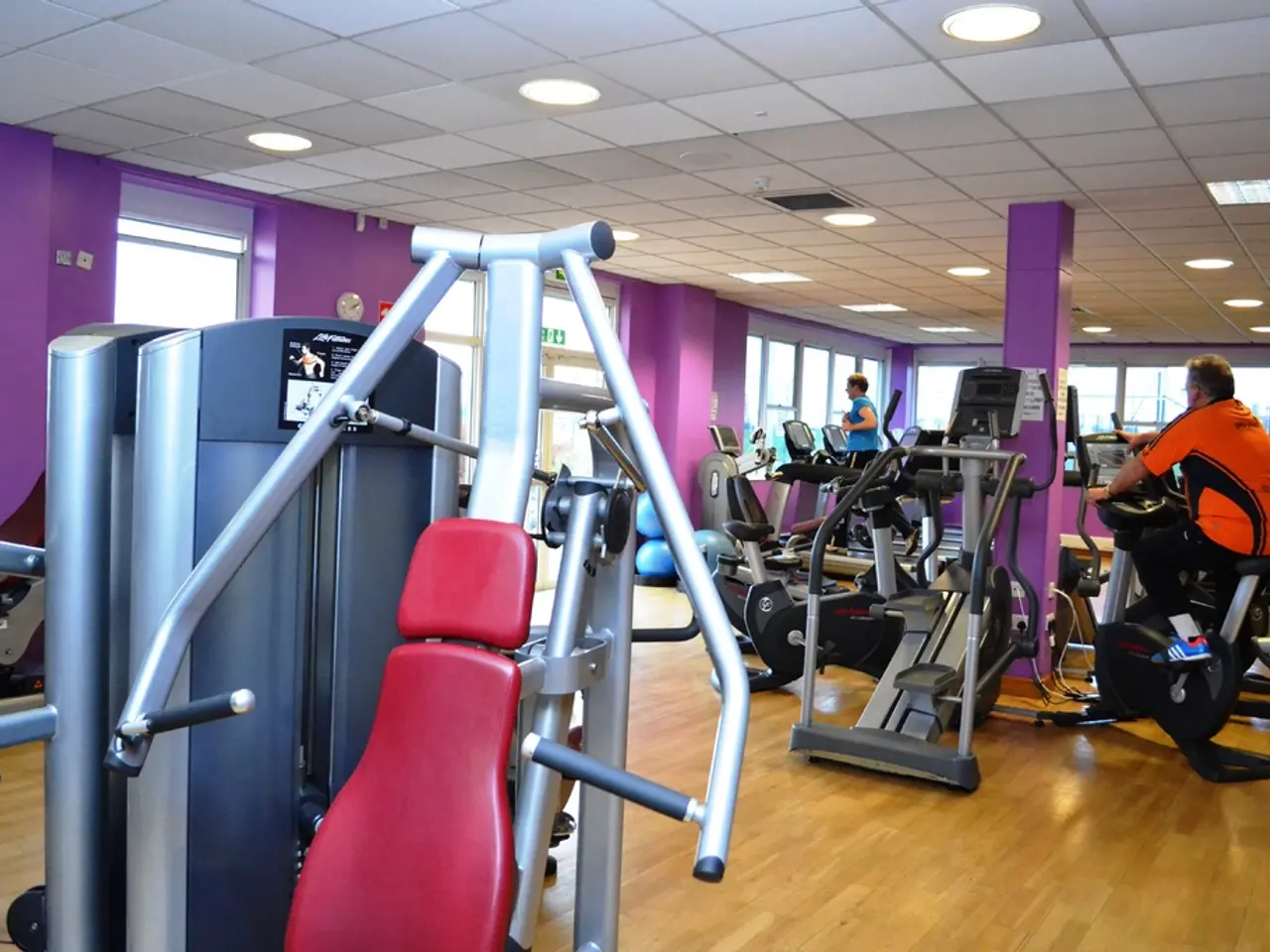"Exploring Methods to Enhance Power through Weightlifting Exercises"
In the realm of health and fitness, strength training has become a cornerstone exercise for individuals seeking to boost their physical capabilities and overall well-being. This type of exercise involves muscles working against resistance, be it traditional weights, resistance bands, or even one's own body weight.
Bodyweight exercises have emerged as a popular choice for those seeking a more equipment-free approach to strength training. These exercises utilise your body weight as resistance, providing an effective means of building functional strength and muscle. Popular examples include push-ups, which target the upper body, squats for the legs and glutes, lunges for improved balance, planks for core and stability, and burpees for a full-body workout.
Isometric exercises, another alternative, involve holding a position for a period of time to engage muscles without moving the joints. Examples include wall sits, plank holds, and glute bridges, which all offer benefits for various muscle groups.
Progressing bodyweight exercises over time is crucial for continued strength gains. This can be achieved by increasing volume (performing more reps or sets), frequency (training more often), or difficulty (modifying exercises to make them more challenging).
Resistance bands, which offer similar strength gains as using free weights or weightlifting machines, can be a gentler option for those with joint issues. Free weights, such as barbells, dumbbells, kettlebells, and medicine balls, are also commonly used for strength training. Suspension training, a bodyweight workout that requires a system of straps and other equipment, can also be an effective method.
For beginners, utilising weightlifting machines may provide a safer introduction to weight training. These machines help lift weights and can be adjusted to suit individual abilities, making them a viable option for those new to strength training.
The purpose of strength training is to make muscles grow stronger and adapt to the demands placed on them. This not only enhances physical abilities but also offers numerous health benefits, such as increased muscle mass, boosted metabolism, and daily calorie burn. Furthermore, weight-bearing exercises stimulate tissue growth that makes your bones stronger, helping to protect against osteoporosis and bone fractures.
Strength-training workouts typically last between 30 minutes to an hour, making them a manageable addition to any fitness routine. By incorporating strength training into your fitness regimen, you'll be well on your way to a stronger, healthier you. However, it's essential to remember that, as with any exercise programme, it's crucial to consult with a healthcare professional before starting a new strength training routine, especially if you have any pre-existing health conditions.
[1] American College of Sports Medicine. (2019). ACSM's Guidelines for Exercise Testing and Prescription. Lippincott Williams & Wilkins. [2] National Strength and Conditioning Association. (2016). Essentials of Strength Training and Conditioning. Human Kinetics. [3] Schoenfeld, B. J., Grgic, J., Ogborn, D., Krieger, J. W., Delavier, F., Wilborn, C., … Häkkinen, K. (2017). International Society of Sports Nutrition position stand: strength training and skeletal muscle hypertrophy. Journal of the International Society of Sports Nutrition, 14(1), 23. [4] National Health Service. (2021). Core exercises: How to strengthen your core muscles. Retrieved from https://www.nhs.uk/live-well/exercise/core-exercises-how-to-strengthen-your-core-muscles/
- In the domain of education and self-development, learning about the principles of science and health-and-wellness is crucial for understanding the benefits and importance of strength training.
- Those interested in fitness-and-exercise may find education on various training methods, such as sports like basketball or tennis, valuable for broadening their knowledge and improving their overall performance.
- One can further expand their knowledge by delving into the science behind nutritional guidance for health and fitness, learning how proper dietary habits impact muscle growth and recovery.
- Engaging in lifelong learning and continuing education in these areas can help individuals make informed decisions about their health, strength training routines, and overall well-being.




